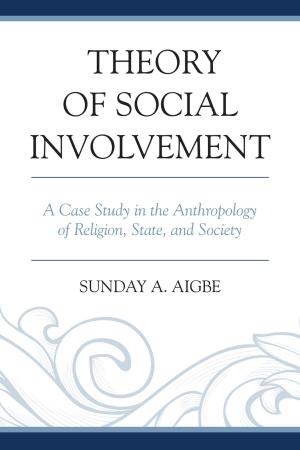Science and Religion in Dialogue
Two Histories of Discarded Images
Nonfiction, Religion & Spirituality, Christianity, General Christianity, Philosophy| Author: | Raymond E. Grizzle | ISBN: | 9780761858065 |
| Publisher: | UPA | Publication: | May 4, 2012 |
| Imprint: | UPA | Language: | English |
| Author: | Raymond E. Grizzle |
| ISBN: | 9780761858065 |
| Publisher: | UPA |
| Publication: | May 4, 2012 |
| Imprint: | UPA |
| Language: | English |
This book provides an overview of the history of interactions between science and religion, with an emphasis on Christianity. Raymond E. Grizzle examines his own history of self-reflection on science and religion, focusing on what we have learned about the structure, history, and functioning of creation. Both histories are interpreted as histories of discarded images, largely consisting of the replacement of images of creation provided by religion with those provided by the natural sciences. Grizzle assesses the major kinds of creationism that exist today and explores conflicts arising from young Earth creationism and intelligent design. He also provides examples of productive dialogue regarding how science and religion might inform one another. Two major themes that run throughout the book are the importance of underlying beliefs and the reliability of modern science in producing a truthful understanding of the cosmos and the creation process. Science and Religion in Dialogue concludes with some suggested principles for constructive self-reflection and thoughts on how today’s conflict might be replaced with productive discourse involving both science and religion.
This book provides an overview of the history of interactions between science and religion, with an emphasis on Christianity. Raymond E. Grizzle examines his own history of self-reflection on science and religion, focusing on what we have learned about the structure, history, and functioning of creation. Both histories are interpreted as histories of discarded images, largely consisting of the replacement of images of creation provided by religion with those provided by the natural sciences. Grizzle assesses the major kinds of creationism that exist today and explores conflicts arising from young Earth creationism and intelligent design. He also provides examples of productive dialogue regarding how science and religion might inform one another. Two major themes that run throughout the book are the importance of underlying beliefs and the reliability of modern science in producing a truthful understanding of the cosmos and the creation process. Science and Religion in Dialogue concludes with some suggested principles for constructive self-reflection and thoughts on how today’s conflict might be replaced with productive discourse involving both science and religion.















